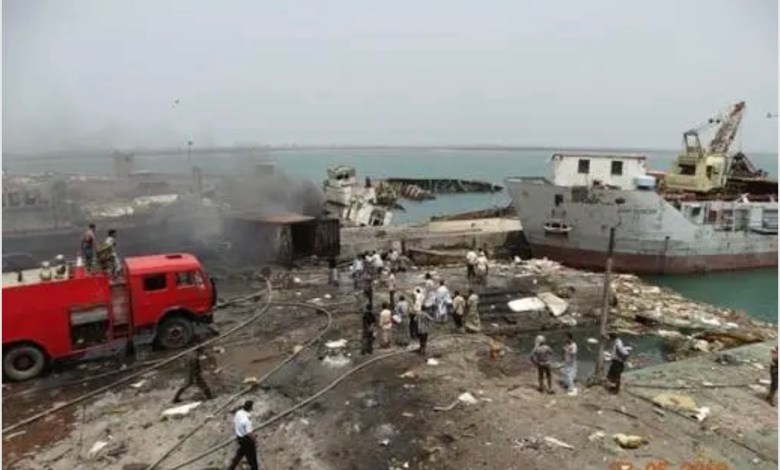From Hodeidah Port to the Heart of the Region: Israel’s Threats Escalate

NYN | Reports and Analyses
Israel continues to launch attacks across the region without facing any meaningful deterrent from the international community, amid growing concerns over the reaction—or lack thereof—of the United States, the primary backer of the Israeli entity.
On the evening of September 16, 2025, Israel renewed its airstrikes on Hodeidah Port, one of the most vital economic lifelines for the Yemeni people, launching 12 airstrikes targeting three docks at the port.
In public statements, the Israeli Defense Minister claimed the attack aimed to ensure the continuation of the naval and aerial blockade on what he described as the “Houthis” (Ansar Allah), disregarding the fact that this escalation targets Yemenis as a whole, as the Houthi movement is an integral part of the country’s national makeup.
The Israeli official reiterated threats to continue the bombardment to disable the port’s ability to unload goods — a move that could impact more than 30 million Yemenis who rely on it for essential supplies.
These threats persist despite the fact that Hodeidah Port is already under strict regulations, with no ship allowed entry without first undergoing thorough inspections by the United Nations Verification and Inspection Mechanism (UNVIM) based in Djibouti.
Israeli officials continue to repeat claims that the port is being used to smuggle weapons by the Houthis — allegations that experts see as a deliberate attempt to mislead international opinion and justify aggression in front of nations opposing Israel’s expansionist agenda, including the so-called “Greater Israel” project, which was openly referenced by the Israeli Prime Minister himself.
Israel’s ongoing threats could further destabilize regional security, especially given the unlimited support from the United States, which exerts significant control over the UN Security Council and continues to block punitive measuresagainst Israel under international law — even as visible violations unfold across Gaza, Syria, Lebanon, Yemen, and even Qatar, one of Washington’s closest allies, which has not been spared from Israeli harm.
Current regional indicators suggest that the situation could spiral into a wider regional conflict if the international community continues to limit its response to condemnations and statements — without taking concrete action to halt what many are calling Israel’s campaign of aggression and extermination across the region.



